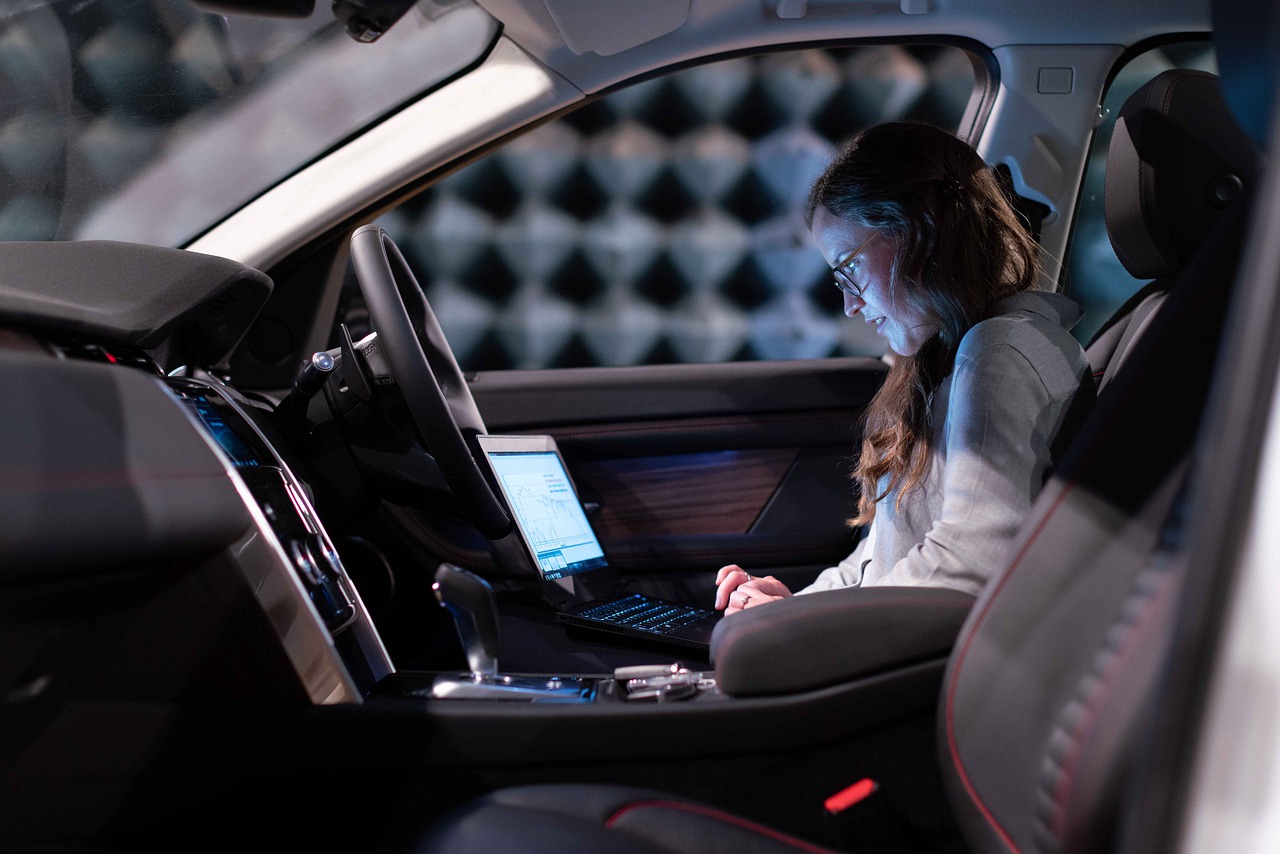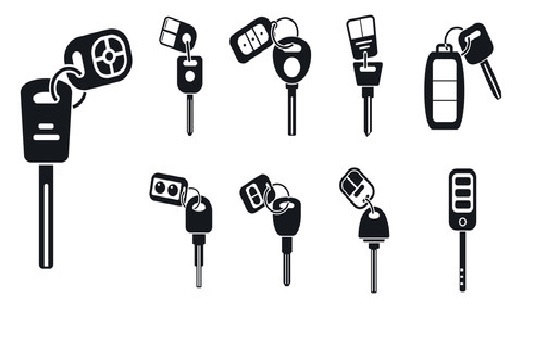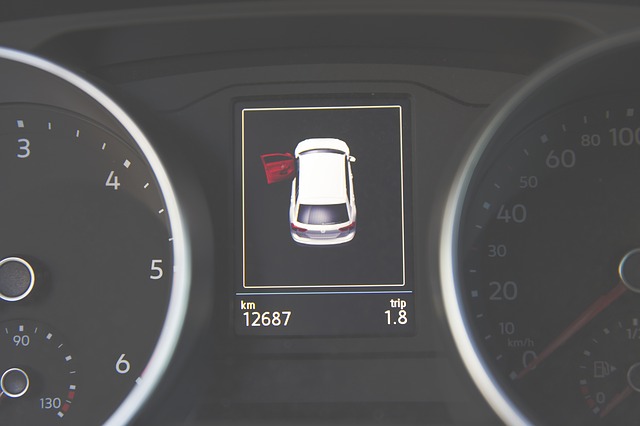Want to know how to prevent car hacking attempts? Read on! Without the use of a car key fob, hackers can steal cars remotely.
These are some of the things that we dislike about the rapid growth of technology and innovation.
The reality is that, even though we open our hands and welcome all the innovative ideas and big changes in science and technology into our lives and environment, there are some adverse effects that they might bring, which can cost us more than we expect. One of the negative things is losing a luxurious car.
The car key fob is one of the inventions that can make riding your car easier and more convenient. This keyless entry device provides secure access, maintains security records, and offers specialized features.
However, despite all these awesome features, this device can still be an entry point for a hacker to steal your car, even when it is not nearby.
READ ALSO: Automotive Cybersecurity Guide: Protecting Your Vehicle from Digital Threats
Table of Contents
Remote Car Hacking on the Rise: Over 100 Vehicles Stolen
There has been a disturbing surge in remote car thefts, which utilize hacking techniques to bypass traditional security measures.
More than 100 vehicles have been reported stolen in what appears to be a coordinated effort targeting specific makes and models.
Toyota Drivers are Particularly Vulnerable
While no car manufacturer is immune, a significant number of these thefts have involved Toyota vehicles. Popular models, such as Tacoma pickups, 4Runners, Highlanders, and Lexus SUVs, valued at around $60,000 each, have been specifically targeted.
Case Studies: Cars Disappear from Driveways
Julie Rollwagen, a resident of Ottawa, became a victim when her 2015 Lexus GX460 was stolen from her driveway around 4:24 am. Despite the car key fob remaining inside the house, she awoke to the sound of the engine and witnessed the thief driving away.
Similarly, Ramzi Yonis of Barrhaven discovered his 2017 4Runner missing from his driveway on a Sunday morning. He initially assumed his wife had taken it, but upon finding her at home with the key fob, he realized that his car had also been stolen.
Not a Toyota-Specific Issue: All Cars at Risk
It’s important to clarify that this is not necessarily a weakness in Toyota’s security systems. The Japanese automaker is known for its advanced anti-theft technology.
In fact, cybercriminals are likely exploiting a vulnerability common to multiple car manufacturers. This highlights the importance of vigilance and potentially requires additional security measures for all car owners.
READ ALSO: Presenting Your Used Car Effectively
How Cars Are Hacked Remotely
Gone are the days of smashed windows and hotwiring. Modern car thieves are increasingly resorting to sophisticated electronic attacks to remotely steal vehicles.
Here’s a closer look at how it can happen:
Exploiting Key Fob Signals
Most modern cars rely on key fobs that communicate with the vehicle using radio signals. These signals, while convenient, can be vulnerable to interception and manipulation by criminals with the right tools.
READ ALSO: Toyota’s Digital Car Share Expands in Australia
The Relay Attack
This technique involves two thieves working in tandem to amplify and relay the key fob’s signal. Here’s a breakdown of the steps:
Signal Amplification: The first thief, positioned near the target car, uses a device to amplify the weak signal emitted by the key fob inside the house. This amplified signal is then sent towards the car.
Signal Relay: The car’s locking system detects the amplified signal and sends a response signal back to the key fob. The first thief intercepts this response signal with another device.
Signal Re-transmission: The first thief then transmits the intercepted response signal to the second thief, typically positioned near the house where the key fob is located.
Unlocking the Car: The second thief’s device receives the signal and re-transmits it back to the key fob, essentially tricking it into thinking a valid authorization request is coming from right next to the car. The car then unlocks its doors, allowing the thieves to start the engine using a cloned key or other methods.
Out-of-Range Doesn’t Mean Out-of-Risk
While traditional key fobs have a limited range, thieves can use powerful amplifiers to significantly extend the signal’s reach. This means even if your key fob is stored deep inside your house, it might still be vulnerable.
Stolen vehicles are often shipped or sold overseas, making recovery difficult. Some victims are fortunate enough to have their cars recovered before they leave the country, while others may never see their vehicles again.
How To Prevent Car Hacking
With the increasing sophistication of car technology, vulnerabilities have emerged that can be exploited by tech-savvy thieves. Fortunately, there are steps you can take to make your car a less attractive target and significantly reduce the risk of falling victim to a cyber heist.
Here are some key strategies to prevent car hacking:
Securing Your Key Fob
- Faraday cage defence: Invest in a Faraday cage, a metal box that blocks radio signals. Store your key fob inside the cage whenever you’re not using it. This disrupts the signal and renders it useless to potential attackers employing relay attacks.
- Signal-shielded pouch: Consider using a signal-shielding pouch for your key fob. While not as effective as a Faraday cage, these pouches can dampen the signal strength, making it more difficult for thieves to capture it from a distance.
Smart Parking Habits
- Location, location, location: Park your car in well-lit areas with security cameras whenever possible. Increased visibility deters thieves and provides valuable footage in case of an attempted hack.
- Home sweet (secure) home: If possible, park your car in a garage or a secure parking lot. This adds a physical barrier between your vehicle and potential attackers. For drivers in Melbourne who leave their vehicles parked for extended periods, such as overnight, during work travel, or over several days, choosing monitored parking facilities with controlled access, good lighting, and on-site security can further reduce risk. Secure options designed for long term parking in Melbourne help limit unauthorised proximity to vehicles, which is a key factor in many remote car hacking attempts.
Tech-Savvy Safeguards
- Software Updates: Stay up-to-date with the latest software updates for your car’s infotainment system. Manufacturers often include security patches in these updates to address newly discovered vulnerabilities.
- Consult your mechanic: During routine maintenance, ask your mechanic to check for any known security vulnerabilities specific to your car model. They might recommend additional software updates or hardware upgrades to enhance your car’s security.
Limiting Digital Access
- Beware of aftermarket gadgets: Avoid installing unauthorized electronic devices or gadgets in your car’s system. These can introduce security loopholes that hackers might exploit.
- Use caution with connected car features: If your car has connected features like remote start or location tracking, be mindful of the security settings to ensure your data is protected. Use strong passwords and enable two-factor authentication whenever possible to minimize the risk of unauthorized access.
Staying Vigilant
- Suspicious activity: Be alert to any unusual activity around your car, such as someone lingering near your parked vehicle or tampering with your key fob. If you notice anything suspicious, report it to the authorities immediately.
- Invest in a steering wheel lock: While not a foolproof solution, a visible steering wheel lock can deter casual thieves and make your car a less appealing target.
By implementing these preventative measures, you can significantly reduce the risk of car hacking. Remember, car security is an ongoing process. Stay informed about the latest threats and adapt your strategies accordingly to keep your vehicle safe in the digital age.
Bottom Line
Car hacking is one of the worrisome trends to be wary of. By employing a layered security approach that combines smart key fob storage, mindful parking habits, regular software updates, and vigilance, you can significantly reduce the risk of a cyberheist and keep your car safe. Remember, a little prevention goes a long way in protecting your prized possession.
Nonetheless, you can either guard your car keys or apply the preventive measures highlighted above to prevent car hacking. That way, you can avoid the hackers’ auto theft attempts.
Note: This was initially published in June 2020, but has been updated for freshness and accuracy.
RELATED POSTS
- How To Prevent Bluetooth Hacking
- What Is Cryptoviral Extortion? How to Prevent It?
- Security Alert: The Most Common COVID-19 Online Frauds and Scams
- Breachers Gonna Breach: Protect Your Organization From Internal Threats
- Five Things You Should Know About Becoming a Car Designer
- Car Care and Cybersecurity: Protecting Your Vehicle Inside and Out
- How To Rent A Cheap Car In Various Countries
- Can VPNs Help Prevent Cyberattacks? [We Have The Answer]
- Surefire Tips – How To Protect Your Data From Cyber Attacks
About the Author:
Abraham Faisal is a professional content writer. He has a strong passion for online privacy, cybersecurity and blockchain and is an advocate for online privacy. He has been writing about these topics since 2018 and is a regular contributor to a number of publications. He has a degree in Computer Science and has in-depth knowledge of the ever-evolving world of digital security. In his free time, he likes to travel and explore new cultures.









